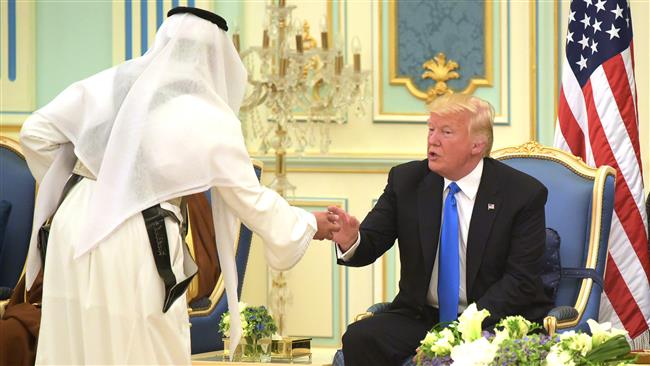US government must compensate losses it has inflicted on Iran: Zarif
Iran’s Foreign Minister Mohammad Javad Zarif says regardless of who wins the forthcoming presidential election in the United States, the next American government must make up for the losses that its predecessor has inflicted on the Iranian nation.

Zarif made the remarks in a virtual address to the annual Mediterranean Dialogues 2020 conference, which was hosted by Italy, on Monday.
Iran’s top diplomat stressed that it doesn’t make any difference to Iran who becomes the next US president, because the new government must take steps for the compensation of losses incurred by Iran as a result of unilateral measures taken by the US administration.
“It is not important for us who will win the upcoming election in the US, but it is important for us to see Washington rectify its approach towards Tehran,” he noted.
Pointing to the US’ economic terrorism against the Iranian nation, Zarif said those who claim that they have not imposed any medical sanctions on the Islamic Republic should know that it has not been impossible for Tehran to obtain medicines due to the banking restrictions imposed on the country.
Late in June, Iran’s Foreign Ministry censured the White House for its desperate efforts to lead an international campaign to use ‘economic, medical terrors against Iranian human rights.’
The Ministry pointed to the “horrible and deadly” violation of human rights by the regime in the United States and said, “From depriving Iran of its own financial resources for making ends meet, to banning delivery of the COVID19-related supplies for saving Iranians’ lives, the US regime is desperately leading the world campaign to use economic, medical terrors against Iranian #HumanRights.”
Elsewhere in his address, Zarif said the massive sale of US weapons and military equipment to different countries has been among factors behind the intensification of instability in the world.
The weapons the United States sells only to Saudi Arabia each year is three times the total Iranian military and defense budget, Iran’s foreign minister said.
US President Donald Trump in 2017 closed an arms deal with Saudi Arabia, which is worth $350 billion over 10 years and $110 billion that will take effect immediately.
“This package of defense equipment and services support the long-term security of Saudi Arabia and the [Persian] Gulf region in the face of Iranian threats, while also bolstering the Kingdom’s ability to contribute to counter terrorism operations across the region, reducing the burden on the US military to conduct those operations,” the White House said in a statement at the time.
The top Iranian diplomat further stressed the importance of diplomacy as the most effective means to solve all international issues, saying that the landmark nuclear deal, officially known as the Joint Comprehensive Plan of Action (JCPOA), signed between Iran and major world powers in 2015, was a great diplomatic achievement, which was clinched following serious and long-term negotiations and hard work.
Zarif reiterated that the Islamic Republic has complied with its commitments under the JCPOA in full, saying that Tehran signed the JCPOA with open eyes and, therefore, triggered the deal’s dispute resolution mechanism (DRM) at the right time.
Iran’s foreign minister argued that five years since the conclusion of the JCPOA, Iran has not yet reaped the economic benefits of the deal due to the acts of sabotage by certain sides and Europeans’ lack of commitment to their obligations.
Zarif emphasized that Iran is ready to resume all its JCPOA commitments if the European partners fulfill their obligations.
Trump unilaterally abandoned the JCPOA, signed between Iran, the United States, Britain, France, Germany, Russia and China, in May 2018 and reinstated the anti-Iran sanctions, which had been lifted by the accord.
Under Washington’s pressure, the three European signatories to the JCPOA have so far failed to live up to their contractual obligations to protect Tehran’s business interests against the sanctions.







